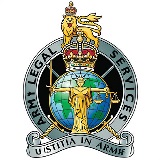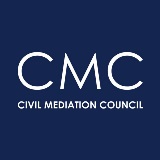*/

For those contemplating the move to sole practitioner: Steven Gasztowicz QC and Susan Jones outline the key considerations when re-orientating your practice
At the present time, many members of the Bar will be reviewing their practising arrangements.
There may be anxiety in relation to chambers’ overheads, a feeling that conference facilities and office space close to courts are not as important as they were, and a number of other reasons why people may be considering different arrangements to those they had previously. Some, sadly, will have no choice but to make new arrangements of some sort because of the closure of their existing chambers.
Obviously, there remain many advantages to chambers membership, whether in an existing or a new set. In the situation that has developed, however, some barristers may for the first time be contemplating practising on their own from home, either out of choice or necessity. It is obviously not possible to assess the value of doing so in any individual case.
The purpose of this article is, however, to make those who may be contemplating moving to become ‘sole traders’ in the sense of being in a ‘chambers’ of just one, namely themselves, aware of the basic regulatory requirements, which they will need to take into account. All references to rules are to those in the Bar Standards Board Handbook.
The move to working in this way is possible for anyone who has practised as a barrister (either self-employed or in post-31 July 2000 employment) with a ‘qualified person’ (defined in rS22) for a total of three years after the completion of their pupillage (rS20).
So long as you meet this basic qualification, you do not need special permission from the BSB in order to work alone, technically from what will be your own chambers of one. You should, however, immediately:
Although your ‘chambers’ can be located at home, you will want to bear in mind that your home address will then be published. If you use serviced offices or a PO Box, you can request that only that address is published in the BSB barristers’ register. You will also want to bear in mind that rC70 requires that:
‘You must permit the Bar Council, or the Bar Standards Board, or any person appointed by them, reasonable access, on request, to inspect:
1. any premises from which you provide, or are believed to provide, legal services, and
2. any documents or records relating to those premises and your practice, or BSB authorised body. and the Bar Council, Bar Standards Board, or any person appointed by them, shall be entitled to take copies of such documents or records as may be required by them for the purposes of their functions.’
Conferences can take place at home, in solicitors’ offices, or elsewhere.
The requirement is simply that you take reasonable steps to ensure your practice is administered competently and efficiently (rC89). You can agree your own fees.
You therefore do not have to employ a clerk or anyone else to administer your practice, but can choose to do this yourself if you wish – so long as you can do so competently and efficiently.
You will therefore need to assess whether you will be able to satisfactorily undertake the necessary administration yourself or whether you need someone to assist. That may depend in part on the nature and extent of your practice.
If you do employ a clerk, or other administrative staff, then as per rC89.6, you must take care that they:
This will obviously involve providing adequate training if the person engaged does not already have it. You must not employ anyone who is subject to disqualification by another approved regulator (rC89.3).
As part of this, you will need to have in place office systems which will ensure that:
The equipment and software required to achieve this will need to be assessed. Information about IT security can be found on the Bar Council Ethics Hub.
Outsourcing is permissible as an alternative to employing staff. For more information, see the Bar Council guidance note. Rule C86 states that:
‘You must ensure that such outsourcing is subject to contractual arrangements which ensure that such third party:
a. is subject to confidentiality obligations similar to the confidentiality obligations placed on you in accordance with this Handbook;
b. complies with any other obligations set out in this Code of Conduct which may be relevant to or affected by such outsourcing;
c. processes any personal data in accordance with your instructions and, for the avoidance of doubt, as though it were a data controller under the Data Protection Act; and
d. is required to allow the Bar Standards Board or its agent to obtain information from, inspect the records (including electronic records) of, or enter the premises of such third party in relation to the outsourced activities or functions.’
You can market yourself in any way which is consistent with the BSB’s advertising and transparency rules – including contacting solicitors directly, and providing details of your skills, experience and fees.
You must comply with s D6 of the BSB Handbook which sets out the transparency rules applicable to self-employed barristers, including those that apply to public access work. You should also refer to the BSB’s associated guidance available on its website here.
All barristers are data controllers under the Data Protection Act 1998 and the General Data Protection Regulation 2016, whether practising in traditional chambers or on their own.
As a sole practitioner you will obviously not be able to rely on any chambers-wide systems or processes for compliance, and will need to have your own in place. In relation to this, see the Bar Council’s guidance on the GDPR.
You must comply with the Complaints Rules at rC99-109. There is a model complaints policy that you can use at Appendix 2 of the BSB guidance on first-tier complaints handling.
All the usual rules applicable to self-employed barristers also of course apply. For further information in relation to becoming a sole practitioner, see the Bar Council’s guide.

At the present time, many members of the Bar will be reviewing their practising arrangements.
There may be anxiety in relation to chambers’ overheads, a feeling that conference facilities and office space close to courts are not as important as they were, and a number of other reasons why people may be considering different arrangements to those they had previously. Some, sadly, will have no choice but to make new arrangements of some sort because of the closure of their existing chambers.
Obviously, there remain many advantages to chambers membership, whether in an existing or a new set. In the situation that has developed, however, some barristers may for the first time be contemplating practising on their own from home, either out of choice or necessity. It is obviously not possible to assess the value of doing so in any individual case.
The purpose of this article is, however, to make those who may be contemplating moving to become ‘sole traders’ in the sense of being in a ‘chambers’ of just one, namely themselves, aware of the basic regulatory requirements, which they will need to take into account. All references to rules are to those in the Bar Standards Board Handbook.
The move to working in this way is possible for anyone who has practised as a barrister (either self-employed or in post-31 July 2000 employment) with a ‘qualified person’ (defined in rS22) for a total of three years after the completion of their pupillage (rS20).
So long as you meet this basic qualification, you do not need special permission from the BSB in order to work alone, technically from what will be your own chambers of one. You should, however, immediately:
Although your ‘chambers’ can be located at home, you will want to bear in mind that your home address will then be published. If you use serviced offices or a PO Box, you can request that only that address is published in the BSB barristers’ register. You will also want to bear in mind that rC70 requires that:
‘You must permit the Bar Council, or the Bar Standards Board, or any person appointed by them, reasonable access, on request, to inspect:
1. any premises from which you provide, or are believed to provide, legal services, and
2. any documents or records relating to those premises and your practice, or BSB authorised body. and the Bar Council, Bar Standards Board, or any person appointed by them, shall be entitled to take copies of such documents or records as may be required by them for the purposes of their functions.’
Conferences can take place at home, in solicitors’ offices, or elsewhere.
The requirement is simply that you take reasonable steps to ensure your practice is administered competently and efficiently (rC89). You can agree your own fees.
You therefore do not have to employ a clerk or anyone else to administer your practice, but can choose to do this yourself if you wish – so long as you can do so competently and efficiently.
You will therefore need to assess whether you will be able to satisfactorily undertake the necessary administration yourself or whether you need someone to assist. That may depend in part on the nature and extent of your practice.
If you do employ a clerk, or other administrative staff, then as per rC89.6, you must take care that they:
This will obviously involve providing adequate training if the person engaged does not already have it. You must not employ anyone who is subject to disqualification by another approved regulator (rC89.3).
As part of this, you will need to have in place office systems which will ensure that:
The equipment and software required to achieve this will need to be assessed. Information about IT security can be found on the Bar Council Ethics Hub.
Outsourcing is permissible as an alternative to employing staff. For more information, see the Bar Council guidance note. Rule C86 states that:
‘You must ensure that such outsourcing is subject to contractual arrangements which ensure that such third party:
a. is subject to confidentiality obligations similar to the confidentiality obligations placed on you in accordance with this Handbook;
b. complies with any other obligations set out in this Code of Conduct which may be relevant to or affected by such outsourcing;
c. processes any personal data in accordance with your instructions and, for the avoidance of doubt, as though it were a data controller under the Data Protection Act; and
d. is required to allow the Bar Standards Board or its agent to obtain information from, inspect the records (including electronic records) of, or enter the premises of such third party in relation to the outsourced activities or functions.’
You can market yourself in any way which is consistent with the BSB’s advertising and transparency rules – including contacting solicitors directly, and providing details of your skills, experience and fees.
You must comply with s D6 of the BSB Handbook which sets out the transparency rules applicable to self-employed barristers, including those that apply to public access work. You should also refer to the BSB’s associated guidance available on its website here.
All barristers are data controllers under the Data Protection Act 1998 and the General Data Protection Regulation 2016, whether practising in traditional chambers or on their own.
As a sole practitioner you will obviously not be able to rely on any chambers-wide systems or processes for compliance, and will need to have your own in place. In relation to this, see the Bar Council’s guidance on the GDPR.
You must comply with the Complaints Rules at rC99-109. There is a model complaints policy that you can use at Appendix 2 of the BSB guidance on first-tier complaints handling.
All the usual rules applicable to self-employed barristers also of course apply. For further information in relation to becoming a sole practitioner, see the Bar Council’s guide.

By the Chartered Governance Institute UK Ireland

Q and A with Major Susie Brooke, Legal Officer in Army Legal Services

Have you considered being a barrister in the British Army? Here’s an insight into a career in Army Legal Services

Clare describes her journey from Crown Prosecution Service legal trainee to Senior Crown Prosecutor, a typical ‘day in the life’ and the inspiration she draws from her career

What's it like being a legal trainee at the Crown Prosecution Service? Amy describes what drew her to the role, the skills required and a typical day in the life

Barristers can learn more about the varied arenas in which their mediation skills can be deployed at the Civil Mediation Council Annual Conference on 6 and 7 November 2024